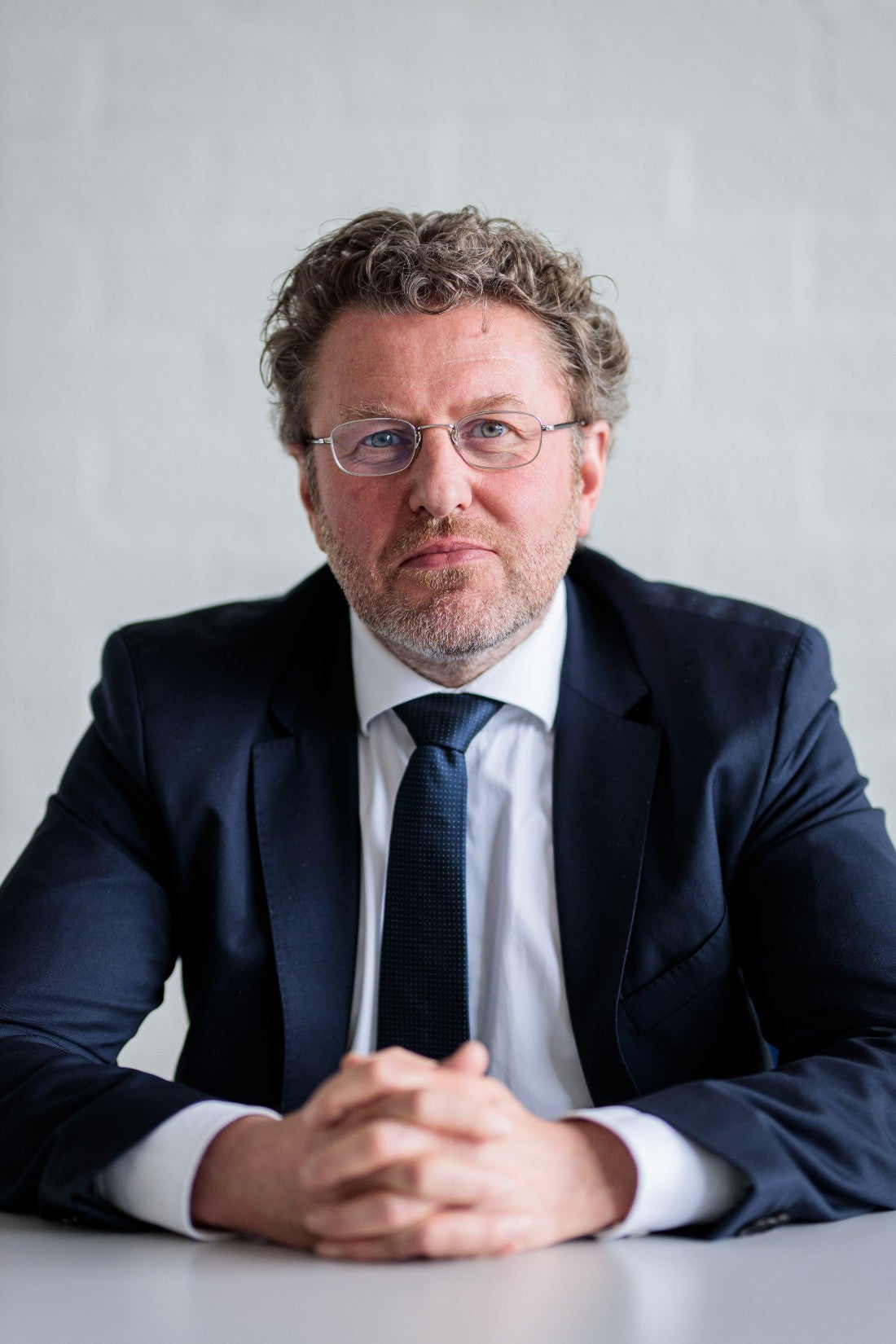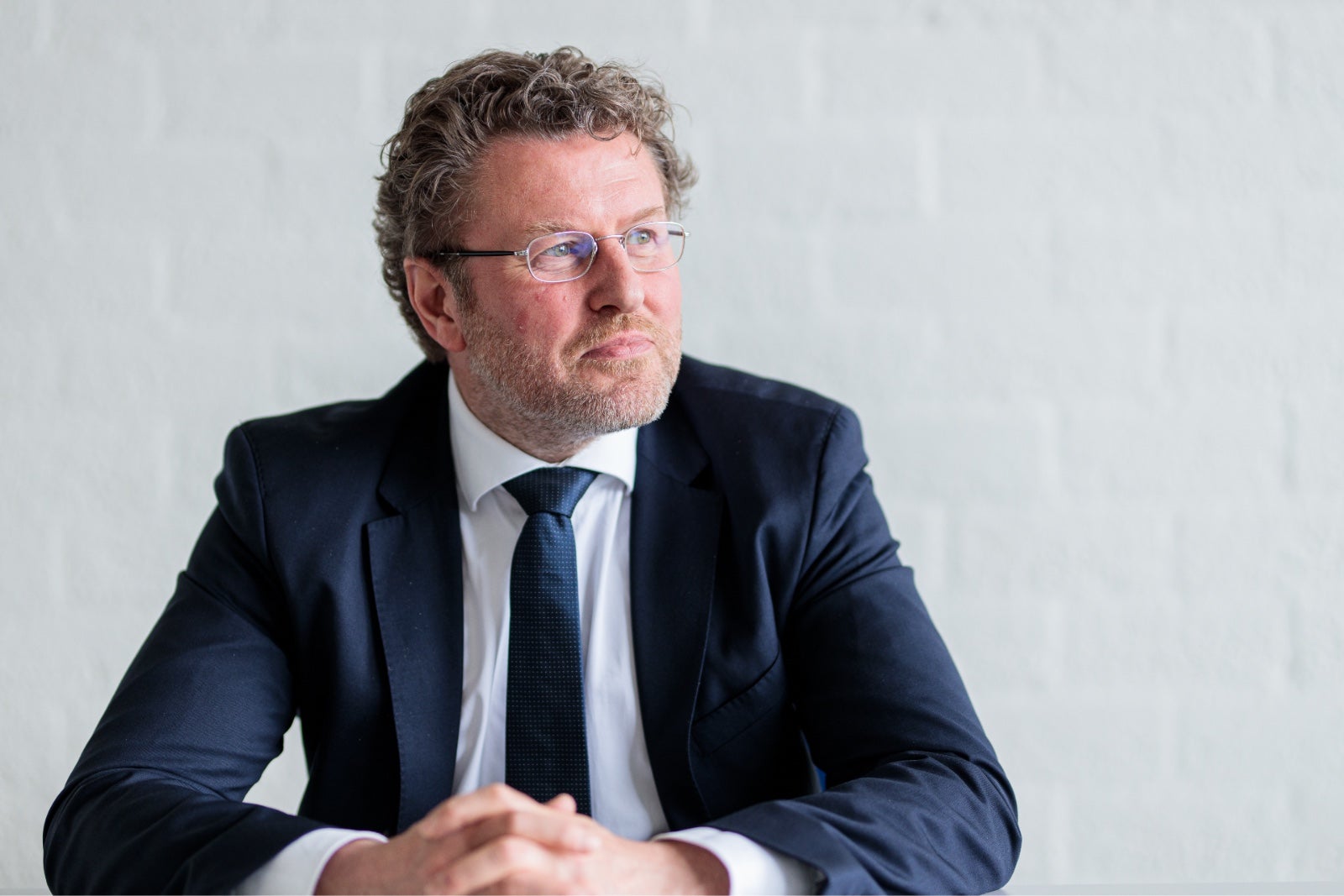Economist Bas Jacobs keeps tumbling from one economic crisis into the next. „Ideally, our economies should be more resilient to major external shocks."
We seem to be tumbling from one economic crisis into the next. Economists like you must be having a hard time keeping up.
„It’s hard to keep up, I’ll admit. I’m currently investigating the best way to set an energy price cap, but now that energy prices have returned to pre-Ukraine war levels, society seems to have lost interest."
„Economists have been on a roller coaster ride since 2008, when several banks collapsed and sparked a global financial crisis. This was followed by the European debt crisis in 2010, after which the ailing economy sank into prolonged stagnation with rock-bottom interest rates. COVID-19 then prompted a series of lockdowns and stimulus packages in 2020. In 2022, the war in Ukraine led to an energy crisis that saw inflation spiral out of control, and recently, in 2023, the financial markets have been rocked again by the collapse of several banks, including the Silicon Valley Bank."
„All these crises are clear evidence that economies are a lot more complex and more susceptible to certain shocks than many economists could have imagined beforehand."
„With all of these crises, many of my fellow economists, including yours truly, have failed to spot certain trends or problems on time. In 2008, for instance, economists had not properly taken into account how catastrophic the impact would be of all these bad mortgages that were being sold, cut up and resold. Similarly, no one had realised that the financial prerequisites for a stable Eurozone – especially during a financial crisis – had not been met. As a result, bond markets descended into panic, which meant that there was no way to prop up failing banks and governments."
„During COVID-19, the impact of the highly intertwined international production processes suddenly became apparent, after lockdowns across the globe crippled international production networks. After that, the war in Ukraine highlighted just how heavily our economies still depend on fossil fuels. All these crises are clear evidence that economies are a lot more complex and more susceptible to certain shocks than many economists could have imagined beforehand. And recently, more people have started asking me whether another financial crisis is imminent."
And what do you tell them?
„For now, I would say “no”. The current situation is fundamentally unlike the crisis in 2008, when there was a fairly clear smoking gun: vast numbers of packaged mortgages. There’s no real equivalent now, although there has been some foolish behaviour on the part of banks and companies. Lots of American start-ups, for instance, had large sums of money in their bank accounts with institutions like Silicon Valley Bank, which were not covered by the U.S. deposit guarantee system. The banks had invested those savings in government bonds, which had plummeted due to recent interest rate hikes. The banks are now collapsing because they are forced to incur massive losses in response to panicked bank runs."
„True, the markets are more turbulent than before. When interest rates rise quickly, as we are seeing now, share prices and house prices will fall, resulting in financial turmoil. Will it spark major systemic risks? I don’t think so, but there’s no way to be sure."
You mentioned that you never saw what was going on in the economy until it was too late. How can non-economists ever hope to understand what’s happening around them?
„Non-economists don’t have to understand, just like you don’t need to know how an engine works to drive a car. The question should be: how can we build a robust economy and prevent unexpected downturns from spiralling into a deep crisis? Ideally, our economies should be more resilient to major external shocks, which they would be if we had a financial system that relied on equity rather than running almost entirely on borrowed money."
„Many of the crises that have plagued us in recent years have happened before. We had the Spanish flu in 1918, the Great Depression in the late 1920s, and the energy crisis of the 1970s. However, one of the reasons that the recent onslaught of crises has been so severe is that our advanced economies are now much international and interdependent."
„I am now older and wiser and hope that my wealth of experience has afforded me a more agile mind, capable of drawing lessons from the past when new crises arise."

Have we learnt from the past?
„At first, not at all. After the 2008 financial crisis spilled over into the Eurozone debt crisis, governments announced harsh, sweeping austerity measures, sending the economy into what is termed a “double-dip recession”. Governments mistakenly believed that the crisis had been sparked by government debts, whereas they were primarily the symptom of high private debt, banking problems and design flaws in the euro. The prolonged crisis only made it more difficult to pay off those debts."
„Governments were more prudent during the COVID pandemic, announcing massive stimulus packages while central banks loosened their monitory policy. This response succeeded in preventing a repeat of the Great Recession and we made it back to pre-pandemic levels just one year after COVID."
„In a sense, governments are repeating past mistakes from the 1970s, during the oil crisis."
„We now find ourselves in a time of “stagflation”: growth is lagging and inflation is rising rapidly as demand increases and supply falters, due in part to the energy crisis. Central banks are trying to quell inflation by raising interest rates. This slows the demand side of the economy, as people will spend less and save more, while companies will also invest and export less. By hiking interest rates, the central bank aims to slow demand and cool down the economy, which should see inflation drop."
„In a sense, governments are repeating past mistakes from the 1970s, during the oil crisis. Governments are spending far too much money, just as they did then, and central banks may also have been a bit late in raising interest rates. Even before Russia invaded Ukraine, we had seen inflation and energy prices rise, which was then exacerbated by the war."
In your 2015 book De prijs van gelijkheid (The Price of Equality), you wrote that we would have to rely more and more on government support due to our aging population and increasing income inequality, while internationalisation has made raising taxes increasingly difficult. Do you feel that people are now aware of this problem?
„In an open, international economy, with highly mobile people and businesses, taxation is a complicated issue. After years of cutting corporate tax rates, the Netherlands is now finally complying with international agreements to prevent multinationals from paying less and less tax, such as measures to combat tax avoidance and the 15 percent minimum tax. In addition, governments are sharing information with tax authorities in other countries about the income of high net worth individuals and channelling money to tax havens has become increasingly difficult."
„Income and wealth inequality are increasing all over the world, although the Netherlands has stayed relatively stable, and strong calls have emerged to hike taxes for big earners and international corporations. The Dutch government’s favoured response to growing inequality in gross incomes is to redistribute wealth by increasing taxes and more transfers. As a result, the net income divide is barely increasing in the Netherlands."
„Moulding a more equal society requires an economic sacrifice."
„Over the past few decades, highly educated workers have seen their income grow more rapidly than less educated workers, which shows that we can reap significant rewards from investing more in education. The flip side is that the income gap between the higher and lower educated has grown since the 1980s."
„Moulding a more equal society requires an economic sacrifice, because higher taxes mean that people will be less inclined to work, save, learn, pursue careers and start businesses, and that businesses will invest and innovate less. Moreover, higher taxes always lead to more tax avoidance and evasion, and are therefore a cost to the economy – a cost that I call the price of equality. That price is substantial and will rise before it falls. In my book, I make various suggestions for lowering the price of equality, such as by improving our current wealth tax."
Want to know more? Join us at Déjà VU festival on June 15 to see Bas Jacobs take a deep dive into the topic during the ‘Never Waste a Good Crisis' knowledge session. The summer festival for the entire VU community is jam-packed with knowledge sessions and talk shows, but you’ll also have plenty of opportunities to dance among the students to performances by famous artists, browse the festival market and enjoy delicious snacks and drinks served by the best food trucks. Don’t miss out! Order your ticket now at https://vu.nl/en/about-vu/more-about/deja-vu-festival







